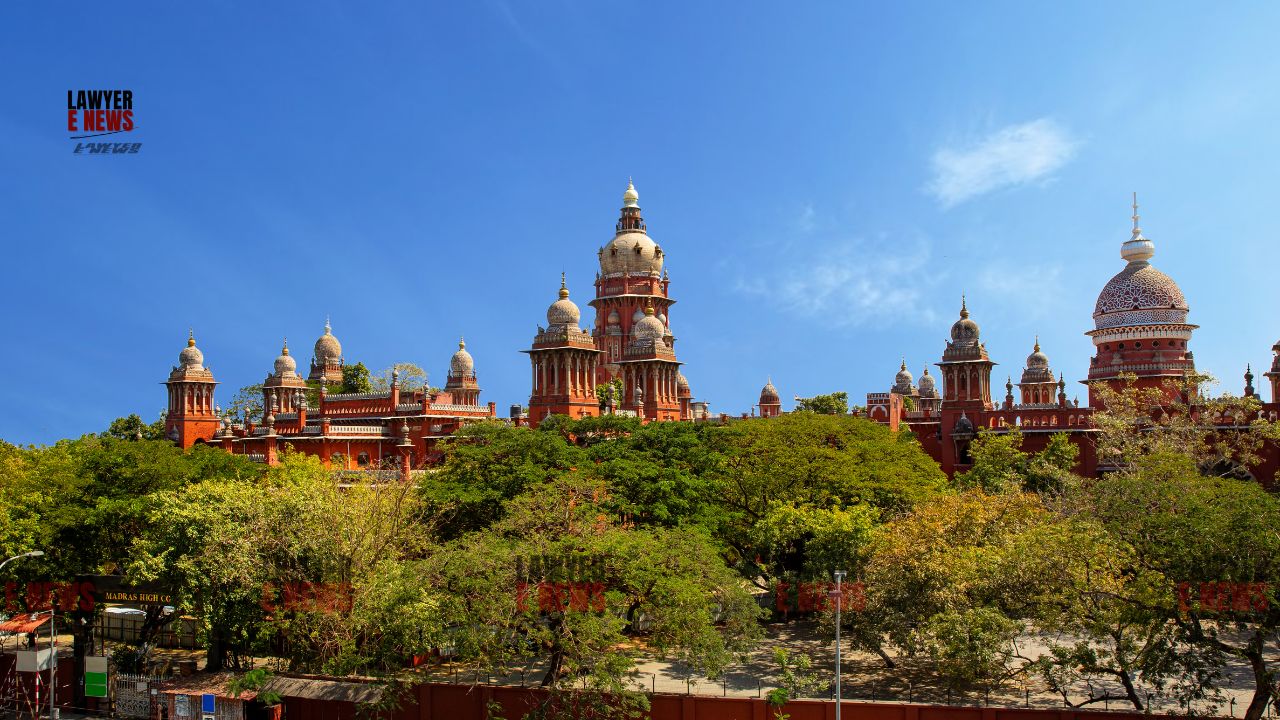-
by Admin
15 February 2026 5:35 AM



Madras High Court holds that extension of time to file final report under Section 36A(4) of NDPS Act was validly granted before expiry of 180 days, dismisses claims of procedural violation.
The Madras High Court, in its judgment on September 4, 2024, upheld the denial of default bail to the second accused in a narcotics case under the NDPS Act. The petitioner, Faizal Ahamed, had challenged the orders of the Special Court that extended the time for filing the final investigation report and dismissed his bail petition. Justice G. Jayachandran ruled that the trial court followed due process and that the extension granted was both timely and legally sound.
On April 23, 2022, acting on prior information, the Narcotics Control Bureau (NCB) apprehended one P. Nedunchezhian at Chennai’s Anna International Airport with 184 grams of Methamphetamine, which he intended to transport to Sri Lanka. Upon interrogation, his accomplices, including the petitioner Faizal Ahamed, were arrested on the same day. The investigation uncovered a wider drug trafficking network, leading to the arrest of further associates, and the eventual seizure of over 2 kg of Ephedrine from the alleged supplier, Shahul Meera.
The petitioner was incarcerated, and the investigation continued. However, as the NCB could not complete the investigation within the standard 180-day period, they applied for an extension under Section 36A(4) of the NDPS Act, which was granted on October 18, 2022. A subsequent petition for default bail filed by Ahamed on December 6, 2022, was denied by the Special Court.
One of the main contentions of the petitioner was that the extension for filing the final report was sought after the 180-day period had expired. However, the court observed that the application for extension was filed on October 12, 2022, ten days before the period’s expiry on October 22. The court noted, "The application was heard on 17/10/2022 and the order was passed the next day in the presence of the accused," indicating that the extension process was duly completed within the required timeframe.
The petitioner’s counsel argued that the extension was granted in a "mechanical" manner without proper reasoning or a report from the Special Public Prosecutor, as required under the NDPS Act. However, the court rejected this assertion, pointing out that the trial court had considered specific reasons provided by the prosecution, including the need to apprehend additional traffickers linked to the drug seizure. "The learned judge applied her mind and was satisfied with the reasons submitted," the High Court stated, dismissing claims of procedural irregularity.
Ahamed had also argued that his right to default bail under Section 167(2) Cr.P.C. was violated since the final report was not filed within the prescribed 180 days. However, the court clarified that since the extension was validly granted, the petitioner was not entitled to default bail. "The bail application was dismissed correctly as there was no default," the court ruled, affirming the lower court’s order dated December 23, 2022.
The judgment emphasized the court’s role in ensuring that extensions under Section 36A(4) of the NDPS Act are not granted lightly. In this case, the court found that all procedural safeguards were met. It reiterated that such extensions are permissible when justified by compelling reasons related to the progress of the investigation. Furthermore, the court noted that serving the extension application to the accused and providing an opportunity to object are critical steps that were duly followed in this case. The absence of objections from the accused or his counsel at the time of the hearing further weakened the petitioner’s argument.
"The trial court’s order extending the investigation period was passed after due consideration of the facts and the progress of the investigation, particularly noting that key suppliers and traffickers were yet to be apprehended," the judgment stated. The court also highlighted that "the petitioner had no objections to the extension when it was being heard, which further negates his claim for default bail."
The Madras High Court’s dismissal of the petitions underscores the judiciary’s strict adherence to the procedural requirements under the NDPS Act, especially in complex cases involving narcotics trafficking. By validating the timely extension of the investigation period, the court has clarified that the right to default bail does not automatically arise when procedural extensions are lawfully granted. This judgment reinforces the legal framework that governs the detention and investigation of narcotics offenders, ensuring that such cases are thoroughly investigated before the filing of the final report.
Date of Decision: September 4, 2024
F. Faizal Ahamed vs Union of India (NCB)
